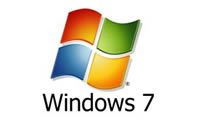The top 10 Microsoft Windows 7 features
As the release candidate of Windows 7 beckons, we take a look at some of the best features we can look forward to in Microsoft’s new operating system.

The release candidate of Windows 7 is out today for MSDN and Technet subscribers.
We've already looked at the most important business features that will be coming to the operating system (OS), but now we look some of the most compelling overall end-user features that will make a difference to you on the desktop. Some are small, and some are major, but taken all together it makes for the most exciting upgrade for Windows users since the arrival of Windows XP.
1. Speed
Even aside from incompatibilities and other issues that many people had with Vista, one of the most straightforward was speed it just felt too sluggish compared to XP, even on pumped up hardware. Windows 7 brings a more responsive and sprightly feel and Microsoft has spent a lot of time and effort getting the Start Menu response just right.
Microsoft has also recognised the need for improved desktop responsiveness, which gives the impression that the computer is responding to the user and that they are in control something that was often lacking with Vista.
You can also expect faster boot times. And the boot sequence is now not only prettier than it was with Vista, but it's speedier too.
2. Compatibility
Get the ITPro. daily newsletter
Receive our latest news, industry updates, featured resources and more. Sign up today to receive our FREE report on AI cyber crime & security - newly updated for 2024.
In simple terms, compatibility on Windows 7 will be far better than it was with Vista. Many programs that individuals and companies used on Windows XP did not work immediately and required updates, but with Windows 7 almost all applications that work on Vista should still run.
In essence, Windows Vista has done most of the hard work for Windows 7 in this respect.
3. Lower hardware requirements
Vista gained a reputation for making even the beefiest hardware look rather ordinary. Windows 7, however, will run well on lower end hardware, making the transition from Window XP less painful.
Microsoft is even pushing Windows 7 for netbooks. This could provide a modern replacement for Windows XP, which has found a new lease of life as the OS of choice on netbooks, supplanting Linux. The downside is that Windows 7 Starter Edition, as it will be called, will be limited to only three applications running at the same time.
4. Search and organisation
One of the best things about Windows 7 is the improved search tool, which now rivals Mac OS X's Spotlight to be able to find what you need quickly and easily. For example, typing mouse' will bring up the mouse option within the control panel or typing a word will display it and split it up neatly into files, folders and applications.
Also introduced is the concept of Libraries, which takes the My Documents' concept a stage further. The various Libraries, such as Documents and Pictures, will watch multiple locations which you can add yourself, so you don't have to keep everything in one place.
5. TaskBar/Start menu
At first glance, the task bar looks like nothing has much has changed since Vista. In fact, that's not the case and it's a lot more powerful. Microsoft is now making best use of its aero technology. By default, taskbar icons are now larger and items are grouped together and are not labelled with clumsy text.
If you have multiple Word documents or Windows Explorer windows open then you'll see a stack appear on the task bar. Hover the mouse over the app and each Window will be visible in a thumbnail. Hover over each thumbnail and it will become visible, while all other open windows temporarily disappear, save for their outlines. You can close each document or Window down from the thumbnail directly or click on it to bring it to the front.
Even better, this works with individual tabs in Internet Explorer 8, though unfortunately not Firefox.
Right clicking gives a Jump menu , giving you speedily access to recent documents and you can pin apps of your choice directly to the taskbar.
In the Start menu, a small arrow to the right of applications such as Word now expands to give a list of recent documents and any can be pinned so you can keep one permanently on the list.
Benny Har-Even is a twenty-year stalwart of technology journalism who is passionate about all areas of the industry, but telecoms and mobile and home entertainment are among his chief interests. He has written for many of the leading tech publications in the UK, such as PC Pro and Wired, and previously held the position of technology editor at ITPro before regularly contributing as a freelancer.
Known affectionately as a ‘geek’ to his friends, his passion has seen him land opportunities to speak about technology on BBC television broadcasts, as well as a number of speaking engagements at industry events.





